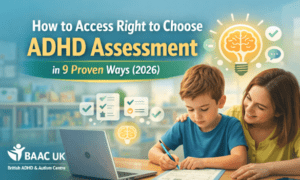In the evolving landscape of education and professional development, artificial intelligence (AI) is shaping how we approach assessment and feedback. Priyesh Rajasekaran, an industry expert, delves into these innovations in his recent article, shedding light on the transformative impact of AI in creating personalized, effective learning environments.
The Shortcomings of Traditional Methods
Conventional assessment techniques, such as standardized testing and infrequent reviews, have long struggled to provide meaningful, individualized insights. A startling statistic reveals that only 17% of teachers feel “very prepared” to leverage student assessment data for instructional purposes. This underscores the urgent need for more nuanced, data-driven approaches to support learning outcomes effectively.
Transformative Potential of AI in Assessment
AI is transforming learning assessment by providing adaptive, personalized, and continuously evolving methods. Unlike static tests, AI-powered adaptive assessments adjust in real time based on a learner’s performance, offering questions at an appropriate difficulty level. This approach enhances engagement and reduces test anxiety, making learners feel challenged yet supported. Studies reveal that adaptive assessments improve learning outcomes by 23% compared to traditional models. Furthermore, AI personalizes content to match individual learning goals, making assessments more relevant and engaging. By analyzing historical performance data, AI creates tailored assessments that boost motivation and retention, moving beyond the one-size-fits-all educational approach.
Real-Time Feedback: Precision and Impact
Immediate, actionable feedback is crucial for effective learning, and AI excels at delivering this in real time. By analyzing learner responses, AI precisely identifies strengths and weaknesses. Unlike human assessors, AI processes data rapidly, providing instant feedback that allows learners to adjust their strategies quickly. The feedback is highly specific and actionable, often including improvement suggestions and personalized resource recommendations. For example, large-scale AI-driven feedback implementations have resulted in a 15% improvement in course grades, showcasing its effectiveness. Additionally, AI can deliver feedback in various formats—text, audio, or visual—accommodating different learning preferences and enhancing overall comprehension and engagement.
Continuous Progress Monitoring
A key advantage of AI in education is its ability to monitor and analyze learner progress over time. AI algorithms can identify performance trends across subjects, pinpointing both strengths and ongoing challenges. This continuous tracking enables timely interventions, addressing issues before they become significant setbacks. Predictive analytics further enhance this by examining historical data to forecast learning outcomes and recommend specific strategies. Institutions using AI-driven early warning systems have seen dropout rates fall by 22%, showcasing AI’s impact on student success. Additionally, AI creates adaptive learning paths tailored to individual needs, ensuring learners remain on a steady path of improvement.
Empowering Learners with Agency and Motivation
AI-driven assessment tools are designed to enhance learner agency and motivation. Personalized goal-setting features empower students to set and track their objectives, giving them a sense of ownership over their educational journey. Research indicates that AI-powered goal-setting tools boost achievement rates by 32%, as learners become more invested in their progress. Choice and flexibility are crucial for engagement, with AI offering multiple assessment formats and learning pathways, increasing motivation by up to 47%. This adaptability provides a tailored experience that aligns with learners’ strengths. Additionally, AI’s mastery-oriented feedback fosters a growth-focused, positive learning mindset.
The Human-AI Collaboration
While AI offers powerful benefits in education, thoughtful implementation with human oversight is essential. Educators are crucial in ensuring AI systems are fair, effective, and aligned with learning objectives. Regular audits can detect biases, and human involvement ensures assessments remain meaningful. Data privacy also demands attention; protecting sensitive information requires clear policies and robust security measures. Institutions with strong data protection protocols report higher trust from students and parents, highlighting the need for ethical and responsible AI deployment.
Looking to the Future
AI-driven assessment and feedback systems are transforming education, offering unmatched opportunities for personalization, efficiency, and engagement. However, the journey continues. As AI advances, balancing automated support with human guidance will be crucial to fostering equitable and effective learning environments
In conclusion, Priyesh Rajasekaran’s exploration into AI’s role in education highlights the potential for these technologies to unlock new levels of learning and achievement. By combining AI’s adaptability with human expertise, we can shape a future where education is more inclusive, effective, and empowering for all.



































